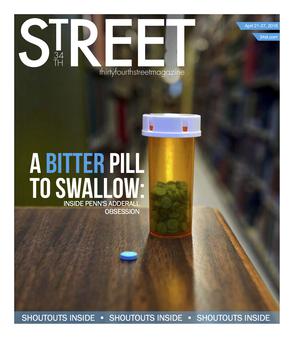Patricia Danzon is an American economist, currently the Cecilia Moh Professor at Wharton School of the University of Pennsylvania. [1] [2] [3]
Patricia Danzon is an American economist, currently the Cecilia Moh Professor at Wharton School of the University of Pennsylvania. [1] [2] [3]
Mambo is a genre of Cuban dance music pioneered by the charanga Arcaño y sus Maravillas in the late 1930s and later popularized in the big band style by Pérez Prado. It originated as a syncopated form of the danzón, known as danzón-mambo, with a final, improvised section, which incorporated the guajeos typical of son cubano. These guajeos became the essence of the genre when it was played by big bands, which did not perform the traditional sections of the danzón and instead leaned towards swing and jazz. By the late 1940s and early 1950s, mambo had become a "dance craze" in Mexico and the United States as its associated dance took over the East Coast thanks to Pérez Prado, Tito Puente, Tito Rodríguez and others. In the mid-1950s, a slower ballroom style, also derived from the danzón, cha-cha-cha, replaced mambo as the most popular dance genre in North America. Nonetheless, mambo continued to enjoy some degree of popularity into the 1960s and new derivative styles appeared, such as dengue; by the 1970s it had been largely incorporated into salsa.

The University of Pennsylvania is a private Ivy League research university in Philadelphia, Pennsylvania. It is one of nine colonial colleges and was chartered prior to the U.S. Declaration of Independence when Benjamin Franklin, the university's founder and first president, advocated for an educational institution that trained leaders in academia, commerce, and public service. Penn identifies as the fourth oldest institution of higher education in the United States, though this representation is challenged by other universities, as Franklin first convened the board of trustees in 1749, arguably making it the fifth oldest institution of higher education in the U.S.
The Wharton School of the University of Pennsylvania is the business school of the University of Pennsylvania, a private Ivy League research university in Philadelphia. It is the world's oldest collegiate business school, having been established in 1881 through a donation from Joseph Wharton.
Danzón is the official musical genre and dance of Cuba. It is also an active musical form in Mexico and Puerto Rico. Written in 2
4 time, the danzón is a slow, formal partner dance, requiring set footwork around syncopated beats, and incorporating elegant pauses while the couples stand listening to virtuoso instrumental passages, as characteristically played by a charanga or típica ensemble.

The Daily Pennsylvanian, Inc. is the independent student media organization of the University of Pennsylvania. The DP, Inc. publishes The Daily Pennsylvanian newspaper, 34th Street magazine, and Under the Button, as well as five newsletters: The Daily Pennsylvanian, The Weekly Roundup, The Toast, Quaker Nation, and Penn, Unbuttoned.

University City is the easternmost portion of West Philadelphia, encompassing several Philadelphia universities. It is situated directly across the Schuylkill River from Center City.

Amy Gutmann is an American academic and diplomat who has served as the United States Ambassador to Germany since 2022. She was previously the president of the University of Pennsylvania from 2004 to 2022, the longest-serving president in the history of the University of Pennsylvania.
John Quinn Trojanowski was an American academic research neuroscientist specializing in neurodegeneration. He and his partner, Virginia Man-Yee Lee, MBA, Ph.D., are noted for identifying the roles of three proteins in neurodegenerative diseases: tau in Alzheimer's disease, alpha-synuclein in Parkinson's disease, and TDP-43 in Amyotrophic Lateral Sclerosis (ALS) and frontotemporal degeneration.

The Penn Quakers are the athletic teams of the University of Pennsylvania. The school sponsors 33 varsity sports. The school has won three NCAA national championships in men's fencing and one in women's fencing.

Ivy Day is an annual ceremony in which an ivy stone is placed on either a residential, academic or administrative building or ground to commemorate academic excellence. The ceremony is most known for being practiced among older colleges in the Northeastern United States. It is most associated with the Ivy League and a group of small liberal arts college known as the Little Ivies. Some institutions announce members of Phi Beta Kappa and specialized honor designations for students. Some classes donate to the college, in the form of gates, facades, and door outlines, by inscribing or creating their own version of symbolic icons of the college's seal or other prominent insignia. The ivy stones are usually decorated with the graduation date and a symbol that represents the college as a whole or the class as a whole. The most common ivy stone is one-by-two feet and is usually made out of workable stone.
Tom C. Lubensky is an American physicist. He is currently the Christopher H. Browne Distinguished Professor at the University of Pennsylvania, where he was Mary Amanda Wood professor of physics (1998–2009) and chair of the Department of Physics and Astronomy.

The College Boat Club of the University of Pennsylvania is the rowing program for University of Pennsylvania Rowing, which is located in the Burk-Bergman Boathouse at #11 Boathouse Row on the historic Boathouse Row of Philadelphia, Pennsylvania. Its membership consists entirely of past and present rowers of the University of Pennsylvania.

Judith P. Klinman is an American chemist, biochemist, and molecular biologist known for her work on enzyme catalysis. She became the first female professor in the physical sciences at the University of California, Berkeley in 1978, where she is now Professor of the Graduate School and Chancellor's Professor. In 2012, she was awarded the National Medal of Science by President Barack Obama. She is a member of the National Academy of Sciences, American Academy of Arts and Sciences, American Association for the Advancement of Science, and the American Philosophical Society.
Mark V. Pauly is an American economist whose work focuses on healthcare management and business economics. He is currently the Bendheim Professor in the Department of Health Care Management at the Wharton School of the University of Pennsylvania. Pauly is a former commissioner on the Physician Payment Review Commission, and has been a consultant to the Congressional Budget Office, the Office of the Secretary of the U.S. Department of Health and Human Services, the American Enterprise Institute, and served on the Medicare Technical Advisory Panel. He is also the Co-Editor-in-Chief of the Springer journal International Journal of Health Care Finance and Economics, and was formerly the Robert D. Eilers Professor from 1984 to 1989.
Donald B. Keim is an American economist, the John Neff Professor Emeritus of Finance and former Director of the R.L. White Center for Financial Research at Wharton School, University of Pennsylvania.

Rozella May Schlotfeldt was an American nurse, educator, and researcher. Originally from DeWitt, Iowa, Schlotfeldt received her BS in nursing from the University of Iowa in 1935. She continued her studies at the University of Chicago in 1947 before becoming the dean of the Frances Payne Bolton School of Nursing at Case Western Reserve University in 1960.

Deborah A. Thomas is an American anthropologist and filmmaker, and is the R. Jean Brownlee Professor of Anthropology and Director of the Center for Experimental Ethnography at the University of Pennsylvania. She has published books and articles on the history, culture, and politics of Jamaica; and on human rights, sexuality, and globalization in the Caribbean arena. She has co-produced and co-directed two experimental films, and has co-curated a multimedia exhibit at the University of Pennsylvania Museum of Archaeology and Anthropology. In 2016, she began a four-year term as editor-in-chief of the journal American Anthropologist. Before pursuing her career as an anthropologist, Thomas performed as a professional dancer with Urban Bush Women, a New York dance company that used art to promote social equity by illuminating the experiences of disenfranchised people.
Karen Glanz is an American behavioral epidemiologist. She is the George A. Weiss University Professor at the University of Pennsylvania. Glanz is a member of the National Academy of Medicine and has been recognized as one of the world's most influential scientific minds.
Janet Alma Deatrick is a Professor Emerita at the University of Pennsylvania's School of Nursing.